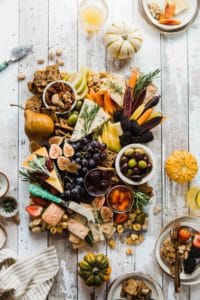Mindful Eating to Support Addiction Recovery
What is Mindful Eating and how can it help support addiction recovery?
Mindfulness is the practice of listening to your body and mind, finding peace in whatever experience you may have, and mindful eating is a way of having this relationship with food. It is an awareness of how food makes us feel. A holistic approach to addiction recovery includes developing this mindful relationship to food. It is important to let food and nutrition support the recovery journey.
So why is mindful eating important? Food is at the foundation of our most basic needs as humans. Yet somehow, we all too often find it difficult to truly nourish ourselves and feel positive about our relationship to what we eat. Addiction disconnects us from our bodies and its needs. We may have spent years eating in ways that were unhealthy, whether by eating too little, too much, or simply denying our bodies the foods that make us feel our best.
In recovery, is isn’t uncommon to find that the very fuel we use to stay alive is loaded with anxiety and shame. And, even as we recover from addiction, we may still find ourselves disconnecting from nutrition. We avoid preparing it, savoring it, and letting it support us in all that we do.
Working with a nutritionist in the early stages of addiction recovery is key to developing healthy eating habits and routines. This kind of nutrition program teaches clients the basics of mindful eating, and is part of treatment at Flatirons Recovery. Once you are back at home, here are a few steps you can take to practice mindful eating and heal your relationship to food as you continue to recover from addiction:
Set aside a fixed time to plan your meals.
We’ve all been there: You are tired from a long day and remember you need to  figure out what to cook dinner. Maybe you search for a recipe, then you run to the store to pick up what you need. Get home, start cooking, all with the stress of just wanting to get it done so you can have something in your stomach after a long day. Or maybe you cave and just order takeout.
figure out what to cook dinner. Maybe you search for a recipe, then you run to the store to pick up what you need. Get home, start cooking, all with the stress of just wanting to get it done so you can have something in your stomach after a long day. Or maybe you cave and just order takeout.
While weekly meal planning may feel time consuming, it not only ends up saving time, but a lot of expended energy. Take a few minutes on Sunday to make a schedule for the week, and then get all, or most, of your supplies before the week starts.
Maybe on the night you know you are working late, your plan is to throw a pile of veggies in the crockpot in the morning. Have some easy ideas on hand that you know will only take a short amount of time to prepare.
If you plan ahead, it is going to cost you zero energy during the week in worrying, planning, and shopping because all of that is already done. Your food is already in the fridge, and you already know that you didn’t sign yourself up for an unmanageable project. This gives you the chance to practice mindful eating with food that you have chosen intentionally, rather than food that is hobbled together.
Plan for leftovers and snacks.
 Planning is not just about making dinner easier; it’s about freeing up your mental energy throughout the entire day. Planning to make enough for leftovers insures that you don’t have to spend more energy, money, and time than needed enjoying a good lunch. Even if you don’t have enough for a whole meal, maybe there’s enough to throw atop a salad or to mix into an omelet.
Planning is not just about making dinner easier; it’s about freeing up your mental energy throughout the entire day. Planning to make enough for leftovers insures that you don’t have to spend more energy, money, and time than needed enjoying a good lunch. Even if you don’t have enough for a whole meal, maybe there’s enough to throw atop a salad or to mix into an omelet.
Keeping a few healthy snacks around also helps insure that you don’t throw together an unhealthy meal (or go pick one up) because you’re in the middle of an emergency blood sugar crash.
Healthy snacking helps you connect with your body and practice mindful eating throughout your day. When your stomach growls, it’s trying to tell you something. Listen to its rhythms, and trust it when it’s saying that you’re low on fuel.
It’s also ok to have a snack while you are cooking. Give yourself permission to enjoy the process by not feeling famished.
Bring mindfulness to the table.
Slow down and take a moment to savor what is in front of you. See if you can  experience it with all five senses. Close your eyes to take in your meal’s smell, taste, and texture. This is the heart of mindful eating.
experience it with all five senses. Close your eyes to take in your meal’s smell, taste, and texture. This is the heart of mindful eating.
A few words of thanks before eating reconnect you with the food in front of you. If grace isn’t your thing, it can be helpful to spend a moment thinking about the journey the food on your plate took to get there. Think about how the entirety of the universe came together in that pile of peas: the soil, the rain, the sun, the farmer, the farmer’s mother, and her mother, and hers.
Growing a handful of your own food, shopping at a farmer’s market, and eating according to your local growing seasons are all ways to connect with your food on a more profound level.
In the store, let your senses guide you.
 If you feel depleted but don’t know what you’re missing, try checking in with your intuition at the grocery store. Stand in the produce section and see what colors of vegetables peak your interest. Check in with your imagination: does the sound of crunching down on an apple appeal to you more than that of snapping a carrot? Engage the memory of sounds, smells, sight, and touch in asking your body what it needs.
If you feel depleted but don’t know what you’re missing, try checking in with your intuition at the grocery store. Stand in the produce section and see what colors of vegetables peak your interest. Check in with your imagination: does the sound of crunching down on an apple appeal to you more than that of snapping a carrot? Engage the memory of sounds, smells, sight, and touch in asking your body what it needs.
Another favorite shopping exercise is letting your sense of smell guide you in a specialty tea or spice shop. Spend at least a half hour smelling the smells and imagine all the fun ways you can integrate them into a cooking concoction.
Make shopping into a playful, whole-body experience. You are more likely to feel inspired rather than daunted, and your body is more likely to get the nutrients it is asking for. This mindful eating practice is also called intuitive eating.
At Flatirons Recovery, we help our clients create self-care plans that work to support them as they navigate early recovery from addiction. Using mindfulness exercises that engage the five senses is one of the many ways we help our clients as we guide them through the difficult emotions and experiences that may have been suppressed under the influence of drugs or alcohol. Our goal is to help our clients safely approach their inner experience without becoming overwhelmed or consumed by it, which often leads to relapse.
[/vc_column_text][/vc_column][/vc_row]
Holistic Treatment for Addiction and Mental Health
If you or a loved one has worsening mental health symptoms or struggles with drug and alcohol misuse, then our holistic treatment center in Boulder, Colorado, is here for you. Calls us Now!



